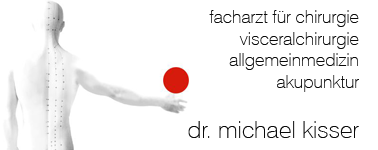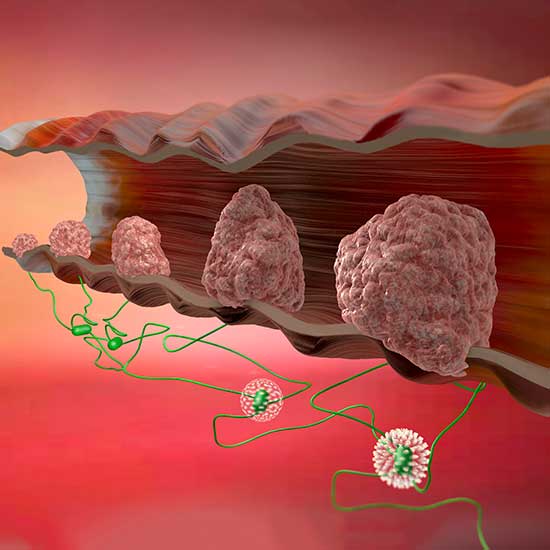Tissue proliferation, colon cancer, rectal cancer
The first step one can take when suspecting intestinal polyps is a colonoscopy, in which tissue samples are examined.
Since polyps are a pre-state of colon cancer, they must be removed and microscopically studied. A polyp-sampling of smaller polyps can be done via coloscopy in Dr. Kissers practice in Vienna.
Through sonography of the bowels or magnetic resonance imaging (MRI), we check how deeply the tumor is growing and whether there are any suspicious lymph nodes. In those cases, we recommend irradiation and chemotherapy prior to the surgery. Through those pre-treatments, we can reach the best long-term results.
Diverticular disease
Diverticula are small bulging sacs pushing forward from the colon wall. In western industrial countries they are becoming increasingly common, often brought about through overweight, lack of physical activity and an unhealthy diet.
Symptoms of a diverticulosis can be a feeling of fullness, flatulence, and pain, mostly in the left lower belly.
Diverticulitis is accompanied by fever and an increased number of white blood cells.
With most diverticular diseases it is enough to take dietary measures and medication.
Depending on the degree of inflammation, the patient is treated with antibiotic infusions and dietary changes. Severe cases must be surgically treated. Almost any procedure is done via laparoscopy. Through the tiny incisions, patients recover quickly, and the risk of a scar hernia is significantly reduced.
Inflammatory bowel diseases
Chronic bowel inflammations are colitis and Crohn’s disease. Those are long-lasting inflammations of the digestive tract that usually last a lifetime. A typical symptom of a chronic bowel disease is that it comes in waves of ups and downs.
Colitis and Crohn’s disease are treated with medication. Patients are only surgically treated if complications arise.



